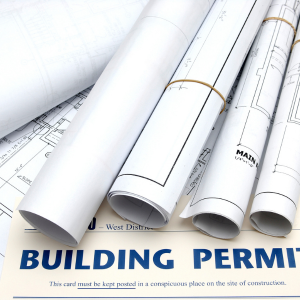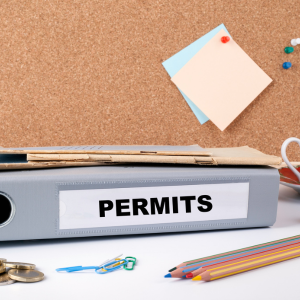
Understanding Unpermitted Work and Its Impact on Selling a House in Portland, OR

When you sell a house in Portland, OR, that has work done without a permit, you may run into problems that make the sale process much harder. Unpermitted work is any changes or additions made to a home without getting the right permits from the local government. This could include anything from turning a basement into a living space to adding more living space.
When selling a house in Portland with these kinds of changes, it’s important to know how they affect both the value of the house on the market and the confidence of buyers. If you do work without permission, you could be legally responsible, put people at risk, and make it harder for potential buyers to get financing.
This could lead to lower offers or a longer time on the market because buyers might need to be sure through inspections or negotiations for repairs and fixes. Sellers should think about getting retroactive permits if they can, or changing their pricing strategies to take these problems into account.
Partnering with professionals who understand Portland’s regulations can help you address these challenges and ensure a smooth, transparent sale. Another option is working with investor home buyers in Portland and surrounding Oregon cities, who can simplify the process and close more quickly.
Common Types of Unpermitted Work Found in Portland Homes and Their Risks
People in Portland often do work on homes without permission, which can be very dangerous for both buyers and sellers. Many homeowners make changes or repairs to their homes without getting the right permits, which can cause problems later on.
Common types of work that don’t need a permit include turning a basement into a living space, making changes to an attic, and adding things like decks or sunrooms. People often do electrical and plumbing work without permits because they want to save money by doing it themselves or hiring unlicensed contractors.
These projects that don’t have permits can make things unsafe, like wiring that isn’t up to code, making fires more likely, or plumbing that isn’t done right, causing water damage. Also, homeowners in Portland who sell a house with work that wasn’t done legally may have to pay fines or face legal action from the city if these problems are found during an inspection.
This lack of proper paperwork can also make real estate deals more difficult by affecting property values and scaring off potential buyers who are worried about future liability or the high costs of repairs needed to bring the home up to code.
How Unpermitted Additions Affect Property Value in Portland Real Estate
Unpermitted additions have a significant impact on property values in Portland’s real estate market. Buyers frequently view unpermitted work as a red flag, which can cause problems during the sales process.
Prospective Portland buyers may be hesitant to purchase a home with unpermitted additions due to safety concerns, adherence to local codes, and potential financial risks. These unauthorized modifications may affect the home’s appraisal value because appraisers may discount the property’s perceived value.
Furthermore, lenders may be hesitant to approve mortgages for homes with unpermitted work, limiting buyers’ financing options. In Portland’s competitive real estate market, sellers may need to lower their asking price or offer incentives to entice buyers willing to take the risk of unpermitted alterations.
Understanding how unpermitted work affects negotiations and pricing is critical for Portland homeowners selling their properties.
Steps to Identify Unpermitted Work Before Listing Your Home for Sale
Before listing your Portland home for sale, make sure there is no unpermitted work that could jeopardize the sale. Begin by thoroughly reviewing all available documentation on the property’s renovations or additions, such as building permits and contractor invoices.
This will allow you to determine whether any modifications were made without the necessary approvals. Hiring a professional home inspector familiar with Portland’s building codes can provide a thorough inspection of your property, including electrical systems, plumbing, structural changes, and extensions.
Focus on areas like basements and attics, which often have unpermitted work. Seek guidance from a local expert familiar with Portland’s housing market to understand common issues sellers face. You can also learn how Northwest Real Estate Solutions buys homes to simplify the process.
Engaging with city records at the Bureau of Development Services can also provide clarity on whether previous projects were filed correctly or if there are any discrepancies that need to be resolved before putting your home on the market. Identifying these issues early allows you to take corrective action or adjust your selling strategy as needed, resulting in a smoother sales process and avoiding potential legal complications.
Understanding the Permit Process: What Sellers Need to Know Before Listing
Before listing a house in Portland with unpermitted work, sellers must thoroughly understand the local permit process. Understanding how permits work can have a big impact on the sale of your home.
Building permits are required in Portland to ensure renovations and additions adhere to safety and zoning standards. Sellers should first consult the original blueprints and compare them to current structures to determine which parts of their property do not have the necessary permits.
It’s critical to understand that unpermitted work can cause issues during a buyer’s inspection, potentially delaying the sale or lowering the property’s value. To address this issue, sellers may consider obtaining retroactive permits, which may necessitate making changes to comply with current codes.
Working with an experienced local expert who is familiar with Portland’s regulations can offer valuable guidance. Additionally, consulting with a contractor or architect familiar with local building codes can help determine what steps are required to bring unpermitted areas into compliance, if necessary.
When listing your home, being open about any unpermitted work is critical for maintaining trust with potential buyers and avoiding legal issues down the road.
Legal Implications of Unpermitted Work When Selling Your Home
Understanding the legal ramifications of selling a Portland home with unpermitted work is essential. Unpermitted work is defined as renovations or modifications carried out without the required permits from local authorities.
This can pose significant challenges during a real estate transaction. Buyers in Portland may be hesitant to make unauthorized changes due to strict building codes and regulations, which can result in liability or compliance issues.
Sellers must disclose any unpermitted work to potential buyers or face legal action or penalties later. Lenders frequently require properties to be up to code before approving mortgages, complicating financing options for prospective buyers.
Sellers should consider retroactively permitting the work or adjusting the sale price to account for the potential risks associated with unpermitted modifications. Consulting with a real estate attorney who is familiar with Portland’s housing laws can help you navigate these complexities and ensure a smooth transaction.
Navigating Disclosure Requirements for Unpermitted Work in Oregon
Understanding and navigating the disclosure requirements is critical when selling a home with unpermitted work in Portland, Oregon. Oregon law requires sellers to disclose any known property issues, including unpermitted work.
Transparency is essential for avoiding legal issues and maintaining buyer trust. Sellers should provide a detailed Property Disclosure Statement that fully discloses any alterations or additions made without proper permits.
Sellers can avoid potential disputes during the sale process by disclosing unpermitted work up front. To ensure that all disclosures are complete and accurate, sellers should consult with a real estate attorney or an experienced agent who is familiar with Portland’s housing regulations.
This proactive approach not only complies with Oregon’s stringent real estate laws but also makes negotiations go more smoothly by setting clear expectations with potential buyers from the beginning.
Insurance Implications of Selling a House with Non-compliant Modifications in Oregon
Understanding insurance implications is crucial when selling a house in Portland with unpermitted work. In Oregon, non-compliant modifications can be difficult for both sellers and buyers.
Homeowners insurance policies may not cover damages or liabilities caused by unpermitted work, leaving sellers vulnerable to financial risks. To avoid future legal complications, prospective buyers must be informed of any unpermitted modifications to the property before it is listed.
Buyers who are aware of non-compliant structures may have difficulty obtaining home insurance, which could affect the sale process. Lenders often require proof of compliance before approving mortgage applications, so addressing unpermitted work can lead to smoother transactions.
Sellers should consult with a real estate attorney or an insurance expert to discuss ways to mitigate these risks and ensure complete transparency throughout the sales process.
Cost Analysis: Permitting Vs. Selling with Unpermitted Work in Portland
It is imperative to conduct a comprehensive cost analysis when selling a house in Portland that contains unpermitted work to ascertain whether obtaining permits or selling the property as-is is more financially viable. By obtaining permits for unpermitted work, you can increase the value of your property by ensuring that it complies with Portland’s building codes and regulations. This could potentially attract more buyers who are apprehensive about legal issues.
Nevertheless, the process necessitates expenses such as permit fees, inspection fees, and potential construction modifications to satisfy code requirements. In contrast, the sale of a home that has undergone unpermitted renovations may result in a lower sale price, as potential buyers may perceive a risk associated with the property.
Furthermore, buyers have the option to negotiate a lower price or request credits to cover future permitting efforts. By understanding the dynamics of Portland’s real estate market and consulting with a local investor or home buyer, you can effectively evaluate these expenses.
Strategies for Resolving Unpermitted Construction Before Selling Your House
If you’re planning to sell a Portland home with unpermitted work, addressing these issues before listing can significantly boost your chances of a successful sale. Start by consulting an expert familiar with Portland’s housing market and experienced with properties that have unpermitted construction. For additional support, Northwest Real Estate Solutions can help with the process.
It’s very important to hire a professional contractor or inspector to look at the unpermitted work and see how much of it there is. They can also help you figure out if retroactive permits are possible. If you can get these permits by bringing the building up to code, it may make your property more appealing and valuable.
You could also set a competitive price for the home that takes into account any risks or extra costs that buyers might have to pay. Being honest about all the work that wasn’t allowed is important for keeping potential buyers’ trust and openness.
Some sellers choose to negotiate repair credits or change the terms of the sale at closing to deal with worries about building without permission. Getting advice from a real estate lawyer who knows the rules in your area can also help protect you and make sure you follow the rules during the sale.
Exploring Options: Retrofitting Vs. Legalizing Existing Unpermitted Features
When selling a house in Portland with unpermitted work, homeowners should carefully consider whether to retrofit or legalize the existing features. Retrofitting entails upgrading the work to meet current building codes, which can be less expensive and time-consuming than attempting to completely legalize it.
This option may appeal to sellers who want to improve safety and marketability without going through the full permitting process. Legalizing, on the other hand, entails obtaining permits for previously unpermitted work in order to comply with Portland’s stringent building codes.
This can give both buyers and sellers peace of mind by eliminating potential future liabilities resulting from code violations. However, legalization may necessitate extensive inspections and modifications, potentially resulting in higher costs and longer timelines.
To best prepare their homes for sale in Portland’s competitive real estate market, sellers should consider costs, time constraints, and the impact on property value when deciding whether to retrofit or pursue legalization of unpermitted work.
Hiring Professionals to Inspect and Remedy Unpermitted Work Issues

It is essential to engage the services of professionals to inspect and resolve any unpermitted work that is present in a Portland home prior to selling it. Engaging licensed inspectors or experienced contractors can assist in the identification of unpermitted work that may not comply with local building codes.
These professionals are skilled in identifying inconsistencies and recommending the requisite adjustments to ensure that the work meets the required standards. You can guarantee that all renovations or additions adhere to Portland’s rigorous regulations by leveraging their expertise.
In addition, consulting with real estate attorneys who are knowledgeable about local zoning laws can offer valuable insights into the potential legal ramifications of unpermitted work. Sellers can mitigate the likelihood of complications during the sale process and potentially enhance the property’s marketability by proactively addressing these issues.
Ultimately, this method facilitates a smoother transaction by assuring prospective buyers about the integrity and safety of the home, in addition to preventing fines.
The Role of Title Companies in Transactions Involving Unpermitted Structures
When selling a home in Portland with unpermitted work, understanding the role of title companies is critical for a smooth transaction. Title companies play an important role in real estate transactions by conducting thorough title searches to uncover any legal issues, such as those involving unpermitted structures.
They check the property’s title and look for any red flags that could jeopardize the sale. Title companies may request additional documentation or disclosures from sellers for unpermitted work to safeguard all parties involved.
They help buyers, sellers, and lenders communicate while adhering to local regulations. By addressing these issues early on, title companies can help mitigate the risks associated with unpermitted structures and assist in negotiating solutions that benefit both parties.
Their knowledge of navigating complex title issues can be invaluable when dealing with properties that have been modified without proper permits, resulting in more efficient and legal transactions.
Buyer Concerns and Negotiation Tactics for Homes with Unpermitted Additions
It is imperative to comprehend and resolve potential buyer concerns while employing effective negotiation strategies when selling a house in Portland with unpermitted work. The safety, legality, and future resale value of homes with unpermitted additions may be a source of concern for buyers.
In order to mitigate these concerns, sellers should disclose any unpermitted work and furnish as much information as possible regarding the quality of the construction and compliance with building codes. The provision of an inspection report from a licensed contractor can bolster the confidence of buyers regarding the structural integrity of the additions.
Negotiation strategies might include adjusting the asking price to reflect potential costs for obtaining permits or rectifying code violations. Sellers could also consider offering credits at closing for permitting expenses or agreeing to handle the permit process themselves before finalizing the sale.
Sellers can potentially preserve the market value of their property and facilitate smoother negotiations by addressing these issues in advance, despite the challenges posed by unpermitted construction.
How to Handle a Potential Buyer’s Objections Related to Code Compliance Issues
When selling a house in Portland with unpermitted work, it’s critical to address potential buyers’ concerns about code compliance issues right away. Begin by being open about any unpermitted renovations or modifications, as honesty can help foster trust.
It’s a good idea to gather all relevant documentation that explains the scope of the unpermitted work, as well as any attempts to ensure safety and quality. Providing a thorough inspection report from a licensed inspector can reassure buyers about the property’s overall condition, even if code compliance concerns exist.
Consider getting estimates for bringing the work up to code; this information can be used as a bargaining chip or even presented as a concession during the sale process. Highlighting these steps demonstrates a commitment to resolving potential issues as well as good faith efforts to comply with local regulations, which may ease buyer concerns.
When selling your Portland home, engage in open dialogue and provide solutions rather than simply acknowledging problems to effectively address buyer objections to unpermitted work.
Marketing Tips for Homes with Known Code Violations or Unapproved Projects
If you want to sell a house in Portland that has code violations or projects that haven’t been approved, you need to market it carefully to get the right buyers. It can be helpful to talk about the property’s potential, since many buyers are interested in homes that they can improve through renovations or personalization.
Be honest about any work that wasn’t allowed, but focus on the property’s unique features and location benefits. Think about going after buyers or investors who are looking for fixer-uppers and might be more comfortable with code violations.
High-quality photos and detailed descriptions should showcase the home’s best features while minimizing areas affected by unapproved projects, without misleading potential buyers. Collaborating with experts experienced in selling homes with similar issues can help you reach more buyers and understand local market trends specific to Portland.
Telling stories about the home’s character and potential can also help people connect with it on an emotional level, making it more appealing even though it has problems.
Enhancing Curb Appeal While Addressing Compliance Concerns in Oregon Homes
When selling a house in Portland that has work that wasn’t done with permission, it’s important to make the outside look good while also making sure the work is up to code. First, make the outside of your Oregon home look good. A new coat of paint, well-kept landscaping, and welcoming entryways can all make a big difference in how many people want to buy your home.
While you’re improving the exterior, you also need to address any compliance issues arising from unpermitted work. To understand your responsibilities, consult local Portland cash home buyers or lawyers who are familiar with Oregon’s housing laws.
If you need to, they can help you get retroactive permits or change the sale price to match. Being honest about any changes that weren’t allowed during open houses can help you gain the trust of potential buyers and make negotiations go more smoothly.
Making small but important changes not only makes the property look better, but it also shows that you are working to fix any legal issues, which makes it more appealing in Portland’s competitive real estate market.
Can You Sell a House with Unpermitted Work in Oregon?
It can be hard to sell a house in Oregon while working without a permit, especially in Portland. But it is possible if you take the right steps. When selling a house in Oregon that has work done on it without a permit, disclosure is very important.
When listing their home, sellers need to be honest about any changes or additions that don’t have the right permits. Potential buyers should be told about the work that wasn’t allowed up front to keep things legal down the road.
Some buyers might be hesitant about unpermitted work, while others may see potential and negotiate accordingly. To help the sale go more smoothly, consult with local Portland experts who have experience handling properties with unauthorized work.
They can give you good advice on how to set a fair price for your home and deal with any legal issues that might come up. You might also want to look into the option of getting permits after the fact, though this may cost more and require more inspections.
If sellers know Oregon’s real estate laws and can clearly explain the state of the property’s changes, they can sell their house even if it has work that wasn’t allowed.
Can You Sell a House with Unpermitted Work?

Selling a home in Portland with unpermitted work can be challenging, but it is entirely possible with the right strategies. Homeowners frequently inquire whether they can sell a home that has undergone renovations or additions without the necessary permits.
The key is to be transparent and understand the consequences of unpermitted work during the sales process. In Portland’s real estate market, it is critical to disclose any unpermitted work to potential buyers upfront.
This honesty builds trust and helps to avoid future legal issues. Sellers should consider obtaining retroactive permits if possible, or adjust their pricing strategy to account for the costs and risks associated with regularizing unpermitted work.
Working with experts who understand Portland’s regulations can make it easier to navigate these challenges. By addressing issues directly and maintaining open communication, sellers can market their homes confidently while staying compliant with local laws. For a quicker solution, sell your Hillsboro house faster and in other cities in Oregon with trusted buyers.
Can You Sue a Previous Homeowner for Unpermitted Work?
When deciding whether to sue a previous homeowner for unpermitted work on a Portland property, it’s critical to understand the legal and contractual complexities involved. Typically, real estate transactions in Portland are subject to disclosure laws that require sellers to inform buyers of any known unpermitted work.
If the previous homeowner failed to disclose such issues, you may have grounds for a lawsuit alleging misrepresentation or breach of contract. However, demonstrating that the seller was aware of the unpermitted work can be difficult.
To properly assess your options, you should review all property disclosures and consult with a real estate attorney who specializes in Oregon property law. Consider alternative dispute resolution methods, such as mediation, which may provide a less adversarial approach to litigation.
Selling a house with unpermitted work in Portland requires understanding these strategies to minimize legal liabilities and maximize marketability.
Are Sellers Required to Disclose Unpermitted Work?
When selling a home in Portland, disclosing unpermitted work is not only ethical but also legally required. Sellers are required to provide potential buyers with complete information about any unpermitted renovations or additions to the property.
This disclosure is critical because unpermitted work can affect the home’s value and safety, and failing to disclose this information can result in legal complications down the road. In Portland, sellers must complete a Property Disclosure Statement, which includes sections that specifically address any unpermitted work.
Being open about such issues not only fosters trust with potential buyers but also shields sellers from future liability. To effectively navigate these requirements, sellers should consult with real estate professionals who have worked with properties that have undergone unpermitted modifications.
Sellers can make the transaction process run more smoothly while adhering to Portland’s real estate regulations by fully understanding their obligations and ensuring all disclosures are accurate.
Helpful Portland Blog Articles
- Guide To Selling Your Portland, OR, Home By Owner
- Selling A House With Title Issues In Portland, Oregon
- Sell A House With Unpermitted Work In Portland, OR
- Selling A House With Code Violations In Portland, OR
- Sell Home to Pay Off Debt in Portland, Oregon
- Can You Sell a House With a Lien in Portland, OR?
- Selling Shares of Your Home in Portland, OR
- Average Cost to Sell a House in Portland, OR
- Selling a Fire-Damaged House in Portland, OR

| BROKER | REALTORS | REAL ESTATE BROKER | CITY OF PORTLAND | BATHROOMS | LENDING |
| LOAN | MORTGAGE LENDING | NONCOMPLIANCE | PREMIUMS | INSURER | REMODELING |
| ZONING ORDINANCES | REALTY | PORCH | CONSTRUCTION PERMITS | OWNERSHIP | LAWSUITS |
| GARAGE | BLOG | BEDROOM |
